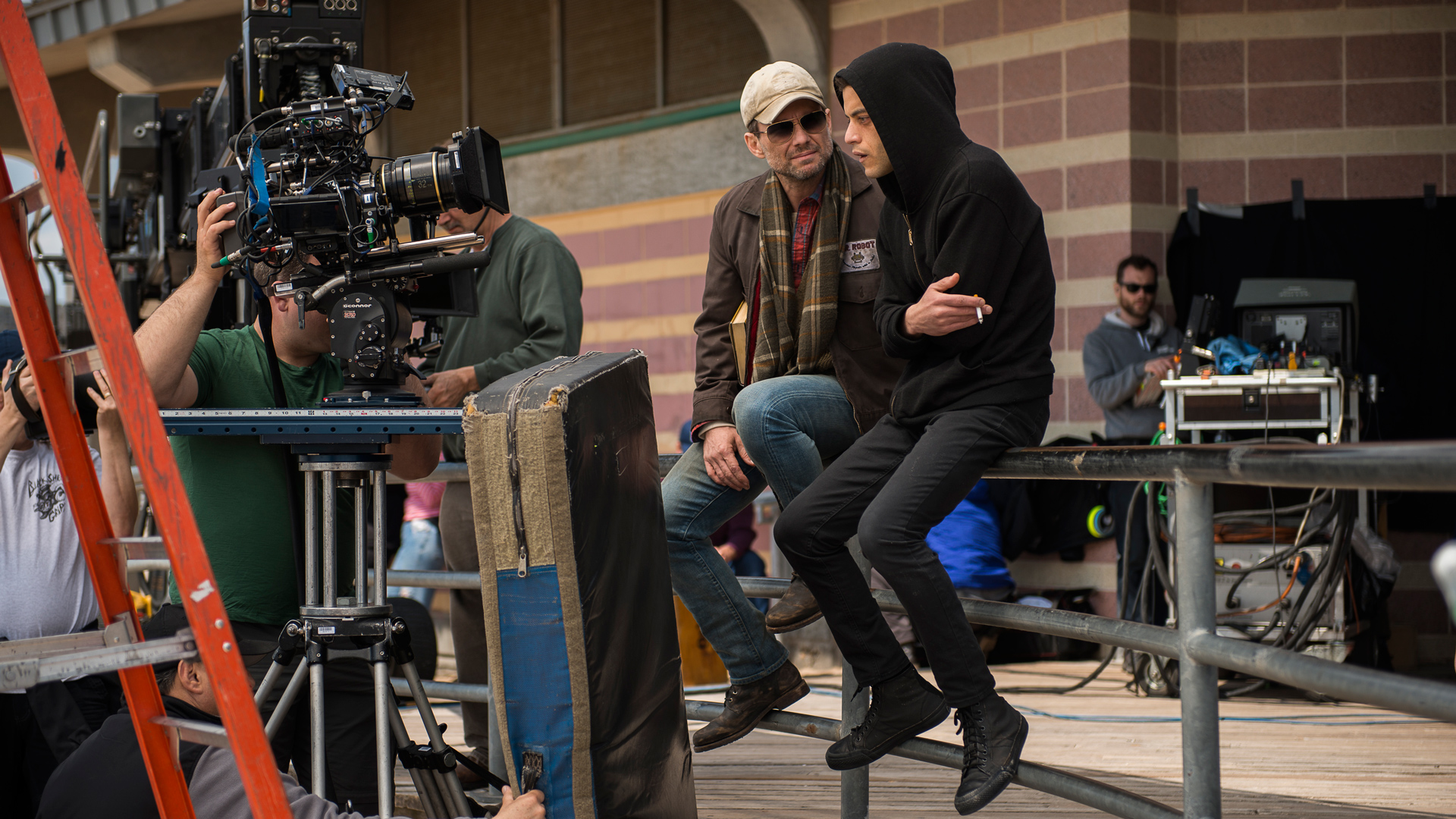Mr. Robot is the best show on television
This insanely gripping hacker drama came out of nowhere to become TV's best and buzziest show — and established USA as a prime home for top-tier drama


A free daily email with the biggest news stories of the day – and the best features from TheWeek.com
You are now subscribed
Your newsletter sign-up was successful
Ten weeks ago, no one would have guessed that the summer's best show would be an unsettlingly dark, anti-corporate journey seen through the eyes of a morphine-addicted, mentally ill computer hacker — let alone that it would air on USA Network.
No one, that is, except for Sam Esmail, the creator of Mr. Robot.
Mr. Robot heads into its season one finale Wednesday night having easily established itself as the most thrilling, fascinating, and surprising show of the summer. (Sorry, True Detective). And almost all of its unique virtues — from its fluid form to its startling performances to its gorgeous aesthetic to its compulsive watchability — ought to be credited to Sam Esmail.
The Week
Escape your echo chamber. Get the facts behind the news, plus analysis from multiple perspectives.

Sign up for The Week's Free Newsletters
From our morning news briefing to a weekly Good News Newsletter, get the best of The Week delivered directly to your inbox.
From our morning news briefing to a weekly Good News Newsletter, get the best of The Week delivered directly to your inbox.
Esmail originally wrote Mr. Robot — which follows Elliot, a mentally unhinged hacker, through a Fight Club-esque journey of self-discovery, substance abuse, and corporate knee-capping — as a feature-length screenplay. But the script turned out to be too long to fit into a standard movie's runtime. USA Network — hoping to shift its brand from popular (if somewhat vapid) procedural shows like Suits, Psych, and White Collar to more challenging serial dramas — chose to turn the screenplay into a show, and gave Esmail nearly complete control over all aspects of the final product, from visual language to storytelling. That's a rare thing in television today. And on Mr. Robot, Esmail's clear vision and total control resulted in the most confident, fully formed series on television since Breaking Bad.
Much of the intrigue of Esmail's show has centered around Mr. Robot himself (Christian Slater). Put simply: Is he real? If so, who is he? After the first episode, almost every keen television watcher answered the same way: He's a figment of Elliot's mental illness, and nothing more. Nine episodes later, that belief was vindicated — but not without the show providing near-constant reasons for we viewers to doubt ourselves.
The big reveal surrounding Mr. Robot's unreality wasn't a surprise. On a lesser show, this would have been a huge letdown. But perhaps the most effective thing about Mr. Robot isn't that it offers huge surprises — it's that it makes us think about every possible angle or twist before the final answer emerges. That big reveal — the one we've waited for all season — was right there all along. (Elliot even asks us, just before the reveal, "You're gonna make me say it, aren't you?")
Mr. Robot is written with such precision that it takes a scalpel to our assuredness. Esmail expertly goads the viewer into grappling with the same self-doubt Elliot lives with. Week after week, the show asked us to think about Mr. Robot — Is he real? Is he Elliot's father? Is he just some hacker? — even though we've known the truth deep down from the first episode.
A free daily email with the biggest news stories of the day – and the best features from TheWeek.com
How can a show basically spoon-feed its audience the big twist in the first episode, then spend the next several convincing said audience that they're wrong after all?
By knowing — and being confident in — the direction in which the plot is headed, and the way the story will be told.
Too many shows today either have no idea where they're going, or are so obsessed with style that they disregard substance. They try to command attention by being bigger, bolder, darker, and more shocking. Often, those desired outcomes come at the expense of character building, storytelling, and basic empathy for characters. The Leftovers hammered audiences with unrelenting darkness. True Detective was so needlessly complicated that it became convoluted. House of Cards pushed its carnivorous nihilism so far, it had nowhere to go but down. Masters of Sex gradually swapped pointed nuance for pointless nudity.
Mr. Robot has forged a different path. Save for the pilot, which suggested a weaker and more episodic show, Mr. Robot doesn't feel like anything else on television. It has style. It has substance. And mostly, it just feels like a great, gripping story that Esmail is having a hell of a lot of fun telling.
In episodic installments, Mr. Robot has riffed on heist films, drug movies, mentor/mentee power dramas, and romantic melodrama. You never know quite what you're going to get when you tune in — other than knowing that it will be excellent. These individual digressions are so entertaining that there's no rush to get to the ending. We're fortunate that Mr. Robot didn't get picked up as a feature film; it's in the expansion of that central narrative that the story went from compelling to revolutionary.
Trust me: You have to watch this show. Just try one episode. You'll be hooked.
Travis M. Andrews is writer and editor from New Orleans. He has written for Time, Esquire, The Atlantic, Mashable, The Washington Post, and The Times-Picayune. When he was younger, he wrote on his mother's walls. She was displeased. For more about Travis, please visit www.travismandrews.com or follow him on Twitter @travismandrews.
-
 Why are election experts taking Trump’s midterm threats seriously?
Why are election experts taking Trump’s midterm threats seriously?IN THE SPOTLIGHT As the president muses about polling place deployments and a centralized electoral system aimed at one-party control, lawmakers are taking this administration at its word
-
 ‘Restaurateurs have become millionaires’
‘Restaurateurs have become millionaires’Instant Opinion Opinion, comment and editorials of the day
-
 Earth is rapidly approaching a ‘hothouse’ trajectory of warming
Earth is rapidly approaching a ‘hothouse’ trajectory of warmingThe explainer It may become impossible to fix
